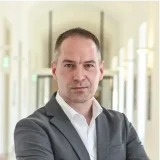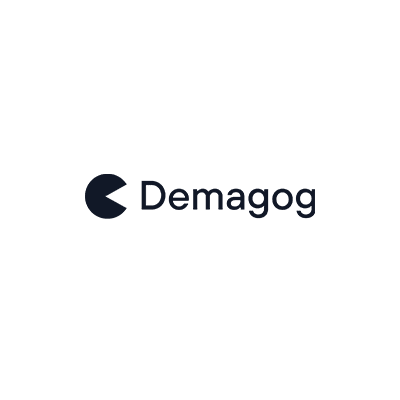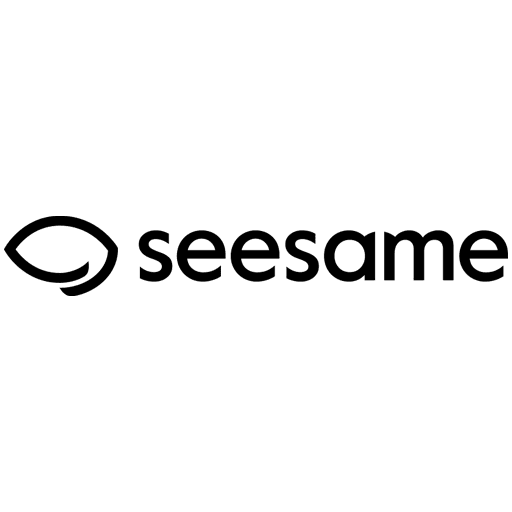
5 November 2024, Prague, Czechia, Charles University, Vlastenecký sál
Inspired by Ray Bradbury’s Fahrenheit 451, this year’s CEDMO consortium annual conference addresses the contemporary challenge of disinformation. In Bradbury’s novel, firemen ignite books to suppress knowledge and control the populace, ensuring that critical thinking is extinguished in favour of a docile society. The title refers to the temperature at which paper burns, symbolising the destruction of truth and the power that controls knowledge.
In today’s world, disinformation acts as the modern equivalent of these destructive fires. The spread of falsehoods across digital platforms threatens to consume the integrity of information in our societies. The conference focused on three vital strategies to combat this danger: fact-checking, media literacy, and AI regulation. Each represents a crucial effort to counteract the harmful effects of disinformation.
Fact-checking stands as a guardrail against the spread of false narratives, preserving the integrity of information much like those who secretly memorized books in Fahrenheit 451 kept knowledge alive. Media literacy empowers individuals to critically engage with information, encouraging a society that values truth and understands the difference between fact and fiction. Meanwhile, AI regulation, through frameworks like the EU AI Act and the EU Digital Services Act, seeks to harness technology responsibly, preventing it from becoming a tool that amplifies disinformation.
This conference explored how these tools can be effectively deployed to resist the spread of disinformation, protect the truth and ensure that society remains informed and engaged. Highlighting the importance of preserving knowledge and truth in the face of growing challenges, much like the protagonists in Bradbury’s novel who fight to keep the light of knowledge alive amidst the darkness of censorship.
The in-person event dove into the most pressing topics linked to tackling information disorders, beginning with a Grand Opening where keynote speakers such as the former Vice-President of the European Commission for Values and Transparency Věra Jourová, Paolo Cesarini, the Programme Director of the EDMO or the Rector of Charles University, and Milena Králíčková discussed the importance of united efforts in preventing and minimizing disinformation’s impact in Central Europe and beyond.
To find out more about our conference check out this article.
Panels
This panel examined the transformative role of generative artificial intelligence (AI) within the context of digital evolution. As AI technologies become increasingly sophisticated, they significantly influence how information is produced and shared, presenting both innovative opportunities and profound challenges. Discussions were centered on the impact of generative AI on society, particularly concerning the proliferation of disinformation and its implications for public discourse. The conversation also addressed responsible AI development and deployment and discussed regulatory measures such as the European Union’s AI Act and Digital Services Act. By exploring these themes, the panel provided insights into harnessing AI’s potential while safeguarding the integrity of information in the digital age.
Confirmed Speakers

Peter Jančárik
Peter Jančárik manages anti-disinformation and media quality projects at Seznam.cz, a major tech company and media house in Czechia. As a signatory of the EU Code of Practice on Disinformation, Peter makes sure Seznam.cz delivers on its promises to push back on misinformation on its platform, moderate and fact-check discussions, and provide a brand-safe environment for advertisers. Previously, Peter had worked for more than 15 years for the leading PR consultancy Seesame. He has an extensive track record in campaigning for both corporate and non-profit clients. Also, he had trained in strategic communication for several public institutions. Peter had co-founded Konšpirátori.sk, a unique project that seeks to protect brands from displaying their ads on disinformation sites. He was responsible for development, communication, and fundraising. He holds a master’s degree in Political Science from Central European University in Budapest and a bachelor’s degree in European Studies from the Faculty of Social and Economic Sciences, Comenius University in Bratislava.

Lukáš Kutil
Lukáš Kutil is a data analyst for the CEDMO Trends longitudinal panel survey. He has experience in theoretical research from the public sector, as well as applied research and market research from the private sector. Lukáš is a psychologist by training and previously worked in clinical research and psychological diagnosis. In addition, he is involved in project management and is a member of the methodological group responsible for questionnaire development, including the implementation of long-term strategies.

Ivan Srba
Ivan Srba has expertise in artificial intelligence, machine learning and natural language processing, with a focus on low resource AI, learning with limited labelled data, multilinguality and social computing systems, especially social networks. His current primary research interest is in supporting media professionals in producing credible content and countering online disinformation. He is currently a principal investigator of the AI-Auditology – a research project focused on auditing of social media AI-based algorithms. Besides that he is a researcher and an executive board member in three EU-funded projects – CEDMO, vera.ai and AI-CODE.

Milan Zubíček
Milan works as the government affairs and public policy manager at Google in Brussels. He leads a team focusing on content moderation issues, such as disinformation, child safety, hate speech and copyright. Before moving to Brussels in 2018, he worked for two years at Google’s Central and Eastern European public policy team, being responsible for government relations in the Czech Republic and Slovakia and coordinating data governance topics across the region. Previously he was the program manager at the Aspen Institute Central Europe and a public affairs consultant at Grayling.

Jakub Šimko, Moderator
Jakub Šimko is a researcher in the areas of artificial intelligence, human-computer interaction, human computation, crowdsourcing and human-AI symbiosis. He focuses on the research topic of data augmentation. He is a researcher at KInIT, where he also leads the Web and User Data Processing team. He co-authored more than 40 internationally recognized publications, together receiving more than 500 citations. Currently, he is participating in 4 European research projects. In 2021, he was co-awarded the Best Paper Award at the prestigious ACM RecSys conference for KInIT’s social media auditing research.
Focusing on the European Union’s Digital Services Act (DSA), this panel explored the intricacies of bringing this comprehensive regulatory framework into effect. The DSA represents a significant effort to create a safer and more transparent online environment by setting clear responsibilities for digital platforms. The discussion examined the challenges of implementing the DSA across different jurisdictions, the expected impact on digital services, and the mechanisms for enforcement and compliance. Attention was given to how the DSA addresses issues of disinformation and the responsibilities of platforms in monitoring content. The panel shed light on the practicalities of translating regulatory ambitions into tangible outcomes that enhance the digital ecosystem.
Confirmed Speakers

Stanislav Matějka
Stanislav Matějka was elected as European Platform of Regulatory Authorities (EPRA) Vice-Chairperson at the 57th EPRA Meeting on 1st June 2023 and joined the EPRA Board for the first time. He is the Head of the Analytical Department at the Slovak Council for Media Services, the national regulatory authority for audiovisual media services. In 2024, he served as Chair of Subgroup 3 of the European Regulators Group for Audiovisual Media Services, which was dedicated to countering disinformation and strengthening democracy in the digital environment. He previously served as a Hybrid Threats and Strategic Communication expert at the Slovak Ministry of Foreign and European Affairs and as an analyst focusing on trends in terrorism studies within GLOBSEC Policy Institute, a Slovak think-tank.

Andrea Liebman
Andrea Liebman is the Head of The Digital Hub at the Swedish Psychological Defence Agency (MPF), where she specializes in the intersection of social media, AI and emerging technologies, strategic communications, and malign information influence. Prior to joining MPF, she served as Head of Communications at the Swedish Institute of International Affairs. She has also provided strategic advice on digital strategies and communications to international organizations, including the United Nations and the International Institute for Democracy and Electoral Assistance. Mrs. Liebman holds two master’s degrees: one in journalism and another in international relations.

Kryštof Kučmáš
Kryštof Kučmáš has extensive experience in digital regulation, having contributed to the negotiation of EU digital policies during the CZ PRES at the Ministry of Industry and Trade. Currently, he is focused on implementing these regulations as part of the Czech Telecommunication Office’s specialized agenda supervision unit, with a particular emphasis on digital space integrity under the Digital Services Act.

Nicola Frank
Nicola Frank is a member of the Lie Detectors’ board, an independent media literacy organisation. An expert in public affairs, European and media policy, she represented the European Broadcasting Union (EBU), advocating Public Service Media (PSM) for 25 years. In her role as the EBU’s Head of Institutional and International Relations she fostered cooperation with relevant UN agencies, the Council of Europe, International and European media and journalist organizations and many others. From 2009 to 2020 she represented the EBU at EU level, as Head of the EBU’s Policy office in Brussels.
Before joining the EBU she represented Media and Entertainment International as Deputy General Secretary. She started her career in the European Commission where she was responsible for a Communication Programme towards the Mediterranean and the Near and Middle East.
She is also a member of the Council for European Public Space.

Jana Soukupová, Moderator
Jana Soukupová is a PhD candidate at Charles University, Faculty of Law. Her main specialization is ICT law, with a primary focus on data and digital assets. She was awarded SYLFF fellowship and carried out a research stay at Maastricht University during her doctoral studies. She is in charge of regulatory activities at CEDMO.
This panel brought together experts who shared practical experiences in promoting media literacy and conducting fact-checking as frontline responses to disinformation. With the ever-growing influx of information, the ability of individuals to critically assess content is paramount. The discussion highlighted successful strategies for educating the public, tools for verifying information authenticity, and the obstacles practitioners face in an age of rapid information dissemination. Emphasis was placed on collaborative efforts and innovative approaches that empower communities to discern truth from falsehood. By providing a platform for practitioners’ perspectives, the panel sought to inspire effective actions to strengthen societal resilience against mis/disinformation.
Confirmed Speakers

Aleksandra Monkos
Dr. Aleksandra Monkos is an Education Project Manager at the Demagog Association, where she leads innovative educational initiatives as part of the Fact-Checking Academy. With a focus on media literacy, she designs training programs that empower diverse audiences to enhance their critical thinking and information verification skills. She has authored educational resources for teachers and academics and conducts fact-checking workshops for youth, educators, NGOs, business and public institutions. Previously, she managed a research grant from the Polish National Science Centre and contributed to several international research projects related to civil society. She is the author of a book on Polish NGOs’ development cooperation with media in Ukraine and has published research in international peer-reviewed journals. She holds a PhD in Political Science.

Dávid Púchovský
Dávid Púchovský is a former investigative journalist, the author of seven books, and as a former policeman he founded social networks and strategic communication for the Slovak police. Police Facebook has become the most-read page in Europe per population. The second site dedicated to combating disinformation, which won several awards, also enjoyed high viewership. Among the achievements of his police career was the disclosure of information on the Russian operation Ladomirová. Currently, he is an assistant to a member of parliament and leads the Hoaxes and Frauds project, through which he continues to fight against hoaxes. His new book, which will be published in a few days – Republika hoaxu, will also be about hoaxes and the state of Slovak society.

Gyula Csák
Gyula Csák is the editor of Bellingcat, with experience in investigative reporting and news journalism. He has previously worked for the BBC, BIRN, Euronews and RFE/RL.

Jochen Spangenberg, Moderator
Jochen Spangenberg works for Deutsche Welle in the field of research and cooperation projects. He serves as vice-chair of the Advisory Council of the European Digital Media Observatory (EDMO), Europe’s primary initiative against disinformation, and as Advisory Board member of GADMO (German Austrian Digital Media Observatory). The topical focus of his work over the past decade has been on research dealing with social newsgathering, disinformation analysis and verification of digital content, and relating all this to the news sector and journalism. In addition, Jochen also lectures at the Free University Berlin in Media & Communication Studies and is an active supporter of Lie Detectors, an NGO that brings media literacy into classrooms.

Joyce Zablit
Jocelyne is involved in fact-checking activities at CEDMO. She is also a project manager and AFP journalist with more than 30 years of professional experience. She is currently leading several fact-checking and disinformation projects in Europe. During her career at AFP, she has managed several bureaus. Most recently, she served as West Coast Bureau Chief based in Los Angeles. Prior to that, she served as AFP’s Europe/Africa English Bureau Chief, AFP’s Beirut Bureau Chief, European Affairs Correspondent and then as Lifestyle Editor in Washington.

Kati Bremme
Kati Bremme is a media expert with 20 years of experience in digital transformation for broadcasters. With a background in the arts and humanities, marketing, publishing, and TV production, she currently specializes in AI and Web3 and their strategic applications for the media sector. Throughout her media career, she has worked in both broadcast and digital realms and is now adept at building bridges between television, radio, and the digital world, reflecting their interconnected roles in the public’s daily life. She currently works as the Head of Innovation at France Télévisions, the French public broadcaster. She is also the editor-in-chief of the blog Meta-Media, a collaborative platform exploring the future of journalism and media literacy. She conducts training sessions on editorial innovation and emerging media trends and regularly shares her insights in keynotes and panel discussions.
Keynote Speakers
Partners
With the Support of:

This project has received funding from the European Union under the call: DIGITAL-2023-DEPLOY-04, project 101158609. This website reflects the views only of the independent Consortium, and the Commission cannot be held responsible for any use that may be made of the information contained herein.
































